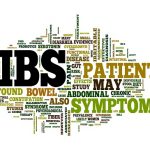 Irritable bowel syndrome, or IBS, is a common gut disorder that shares the same symptoms as colon cancer, making it difficult for people to figure out on their own if they have a bowel condition or, perhaps, something more serious.
Irritable bowel syndrome, or IBS, is a common gut disorder that shares the same symptoms as colon cancer, making it difficult for people to figure out on their own if they have a bowel condition or, perhaps, something more serious.
You should never self-diagnose. If you experience uncomfortable gastrointestinal symptoms, get a full medical evaluation instead of making it a guessing game. In some cases, it could be irritable bowel syndrome – but then again, it might as well be colon cancer.
Advertisement
IBS diagnosis requires stool testing and colon structure evaluation. A test called a colonoscopy can often detect colon cancer. It is important to point out that if you are diagnosed with IBS, it doesn’t mean that you can’t get colon cancer. In other words, you should not assume that you are immune to it.
When it comes to irritable bowel syndrome vs. colon cancer, IBS is one of the most common disorders seen by doctors, impacting literally millions of Americans, while this year (2016), there will be 95,000 new colon cancer cases diagnosed in the U.S.
Is it IBS or cancer?
About 90 percent of new irritable bowel syndrome cases and approximately 95 percent of colon cancer deaths occur in people who are over 50. However, colon cancer has happened in the younger population, too. The gastrointestinal symptoms that both IBS and colon cancer share have to be addressed carefully, because as it turns out, incident rates in younger people appear to be increasing. The difference between irritable bowel syndrome and colon cancer, including each individual’s symptoms, have to be closely monitored for changes.
Just three years ago, Britain’s Daily Mail followed the sad story of 28-year-old Holly Slater who was misdiagnosed with IBS and later died of cancer. The once bubbly nursery worker started experiencing stomach cramps in 2011, and less than two years later she died due to bowel cancer. Holly’s parents have said they believe “outdated views” about the disease impacting young people “cost Holly her life”.
Bowel cancer has always been linked to old age, with about 75 percent of cases in the over 65 age category. Over the last decade, the number of cases among the younger population has shot up, leading to speculation that modern day diet may have something to do with the problem.
In Holly Slater’s case, her family has said that there is no clear reason for the cancer. She was described as “fit and healthy,” and there is no family history of the disease.
Irritable bowel syndrome vs. colon cancer: U.S. prevalence
 Irritable bowel syndrome affects people of all ages. Even some children suffer from IBS. Worldwide, it is estimated that 10 to 15 percent of the population has this gastrointestinal problem. In the United States, estimates are as high as 45 million sufferers. Most of these people are under the age of 50, but older adults can have IBS, too.
Irritable bowel syndrome affects people of all ages. Even some children suffer from IBS. Worldwide, it is estimated that 10 to 15 percent of the population has this gastrointestinal problem. In the United States, estimates are as high as 45 million sufferers. Most of these people are under the age of 50, but older adults can have IBS, too.
Colon cancer is the third most common cancer diagnosed in both men and women in the United States. As mentioned above, 95,000 new cases of this type of cancer are expected in this year alone (2016). The new cases of rectal cancer are expected to be just over 39,000 in the U.S. The overall lifetime risk of getting colon cancer is 1 in 21 for men and 1 in 23 for women.
While you can see there is a wide difference between IBS and colon cancer numbers, the fact is, in both cases, the statistics need to decrease. Research scientists report that they do see colon cancer cases sliding. They feel this is due to the fact that more people are having polyps removed. Polyps, which can be detected through a routine colonoscopy, can develop into colon cancer.
Difference between IBS and colon cancer: Signs and symptoms
When you look at the lists below, you will see why it is often difficult to tell the difference between colon cancer vs. IBS symptoms. As many gastrointestinal specialists will tell you, there can be “subtle” differences between the two.
IBS signs and symptoms:
- Abdominal pain
- Gas
- Bloating
- Constant bowel movements or chronic constipation
- Back and forth alternation between diarrhea and constipation episodes
- Loss of appetite due to bloating
- Weight loss due to diarrhea
Note that IBS symptoms usually present for at least three days a month for a period of three months or more.
Colon cancer signs and symptoms:
- Diarrhea, constipation, or narrowing of stool that lasts more than a few days
- Feeling that you have to have a bowel movement after you have had a bowel movement
- Rectal bleeding
- Abdominal pain
- Weight loss
- Weakness and fatigue
Comparing IBS and colon cancer causes
 We don’t know for certain what causes colon cancer, but what we can tell you is that colon cancer takes place when healthy cells develop errors in their DNA. Essentially, healthy cells grow and divide to keep our body working, but when cell damage occurs, cell division continues even when it isn’t needed and, as a result, a tumor forms.
We don’t know for certain what causes colon cancer, but what we can tell you is that colon cancer takes place when healthy cells develop errors in their DNA. Essentially, healthy cells grow and divide to keep our body working, but when cell damage occurs, cell division continues even when it isn’t needed and, as a result, a tumor forms.
People can sometimes get what is called hereditary nonpolyposis colorectal cancer, or HNPCC. It is also referred to as Lynch syndrome. People with HNPCC tend to get colon cancer before the age of 50. There is also something called familial adenomatous polyposis, or Fap. This is a rare disorder that causes thousands of polyps in the lining of the colon. If Fap goes untreated, you have a greater risk of developing colon cancer before the age of 40.
You may have heard general news reports about the association between diet and increased risk of colon cancer. Many large studies suggest that a Western diet, rich in fat and low in fiber, is the culprit.
In terms of irritable bowel syndrome, there are a number of potential causes. Research suggests that some people develop IBS after episodes of gastroenteritis. Viral infections, such as foodborne illness, are the most common cause of gastroenteritis. Another possibility is that it is caused by an allergy or sensitivity to certain foods, but this has not been definitively proven.
While stress can make IBS symptoms worse, it does not cause the condition. It is common for people who are diagnosed with this stomach disorder to ask, does IBS lead to colon cancer? IBS does not mean you are automatically facing a future with cancer. Although it is not unusual for more than one person in the family to suffer from IBS, whether or not there is a hereditary link is still being investigated.
Colon cancer vs. IBS: Risk factors and complications
There are risk factors associated with both of these health conditions. Let’s look at colon cancer vs. IBS in terms of the risks.
Many people associate most cancers with age progression, and most people who have colon cancer are older than 50, but below is a list of other ingredients that can contribute to risk.
- African American race – statistically accounts for more colon cancer cases than other races
- Personal history of polyps – colon polyps or past history of colon cancer
- Inflammatory intestinal condition – chronic inflammatory diseases increase the risk
- Inherited syndromes – genetic syndromes passed through generations, such as Lynch syndrome
- Family history of colon cancer – a parent, sibling, or child with the disease
- Sedentary lifestyle – less activity can lead to cancer
- Diabetes – people with diabetes and insulin resistance may be at higher risk
- Obesity – excess weight
- Smoking or drinking alcohol – people who smoke and/or drink alcohol have increased risk of colon and other cancers
- Radiation therapy – radiation directed at abdomen for previous cancers
Colon cancer is challenging and comes with potential complications. For example, infection and bleeding is a possibility following any surgical procedures that might be required. Therapies, such as chemotherapy, and biotherapy can lead to nausea, vomiting, more diarrhea, and the inability to fight infection. Sometimes, there are also intestinal blockages in the colon, when waste is unable to move through the intestine.
Some people with IBS experience occasional symptoms, while others suffer from constant pain and discomfort. Bottom line though…you are more likely to have IBS if you:
- Are young – IBS tends to happen to those under 45
- Are female – twice as many women have IBS than men
- Are resistant to certain foods – have allergies or food sensitivity
- Have inflammatory history – some studies suggest gut problems in the family may increase the risk of getting a gastrointestinal disorder
The complication with IBS stem from the fact that avoiding foods that aggravate your symptoms could mean that you are then not getting enough of all the nutrients you need, which can lead to malnourishment. Additionally, both diarrhea and constipation can aggravate hemorrhoids.
IBS can impact the quality of a person’s life, thus leading to depression, so it is important to get the best treatment possible.
Difference between irritable bowel syndrome and colon cancer diagnosis
 IBS doesn’t cause any obvious detectable abnormalities in the digestive system, so there are no specific tests for the condition. Diagnosis is normally made through careful consideration of symptoms. A doctor will assess how long you have had symptoms and how severe those symptoms have been. The location of your pain will also be taken into account.
IBS doesn’t cause any obvious detectable abnormalities in the digestive system, so there are no specific tests for the condition. Diagnosis is normally made through careful consideration of symptoms. A doctor will assess how long you have had symptoms and how severe those symptoms have been. The location of your pain will also be taken into account.
A diagnosis of irritable bowel syndrome will be considered if you have the typical symptoms and if you feel your stomach pain or discomfort either relieved by passing stools or linked to the need to go to the toilet frequently, or if you notice a change in the consistency of your stools. In most cases, bloating, hardness, or tension in the stomach, passing mucus, and aggravation of the symptoms after you eat will also steer a doctor more towards an IBS diagnosis.
Often times, IBS diagnosis is a case of ruling out other conditions, such as infection, celiac disease, and perhaps cancers.
Finding colon cancer at its earliest stage provides the greatest chance for a cure. People who are at an average risk of colon cancer are encouraged to consider screening at age 50. Those at increased risk should do it before 50. Screening options include using a scope to examine the inside of the colon, biopsy analysis, blood tests to check overall organ function or to test for chemicals that are sometimes produced by colon cancer.
Differentiating between irritable bowel syndrome and colon cancer treatment
Half the battle in treating irritable bowel syndrome is understanding the condition. In many situations, managing the discomfort associated with IBS is about lifestyle and diet adjustments. In some cases, medication or psychological treatments are helpful, but an IBS-friendly diet is what seems to go a long way in bringing comfort to a great number of sufferers.
An IBS diet is based on what best suits an individual. What aggravates one person’s stomach doesn’t necessarily aggravate another person’s gut. People with IBS tend to do better with soluble fiber, which is fiber the body can digest. Foods such as oats, barley, bananas, apples, carrots, and potatoes are examples of soluble fiber. Wholegrains, bran, nuts, and seeds are insoluble fiber.
The diet will have to be adjusted depending on whether you have constipation or diarrhea with IBS. It is helpful to reduce coffee and tea intake and limit your artificial sweetener use if you suffer from diarrhea. Reduce intake of starch, avoid leaving long gaps between meals, and drink at least eight cups of fluid a day.
Exercise has been known to relieve the physical and psychological symptoms of IBS, so maintaining physical activity is important. Some people who suffer from IBS also find that probiotics are helpful. They are known to improve digestive health.
Advertisement
The attending doctor may consider a number of different medications for everything from spasm control to constipation relief to depression when you suffer from IBS.
There are various treatments for colon cancer. Sometimes, doctors from various disciplines come together to treat a patient who is suffering from colon cancer. Below you will find a list of the most common treatment methods.
- Laparoscopic surgery – viewing scopes are used to guide passage through the abdomen and into the colon where cancer can be removed.
- Radiofrequency ablation – surgery that heats tumors for removal when the cancer has spread to liver or lungs.
- Radiation therapy – radiation beam directed to the location of cancer
- Brachytherapy – radioactive seeds placed inside the body
- Chemotherapy – drugs that destroy cancer cells
- Targeted therapy – targets specific genes, tissue, or proteins that contribute to cancer growth and survival.
A diagnosis of either IBS or colon cancer brings a sense uncertainty and fear. Understanding the differences and knowing that one does not necessarily lead to the other can bring people relief. Still, when faced with any sort of abdominal discomfort that does not go away, the prudent thing to do is to track your symptoms – write them down if you have to – and relay them in detail to a healthcare professional until you do get a definitive diagnosis.
